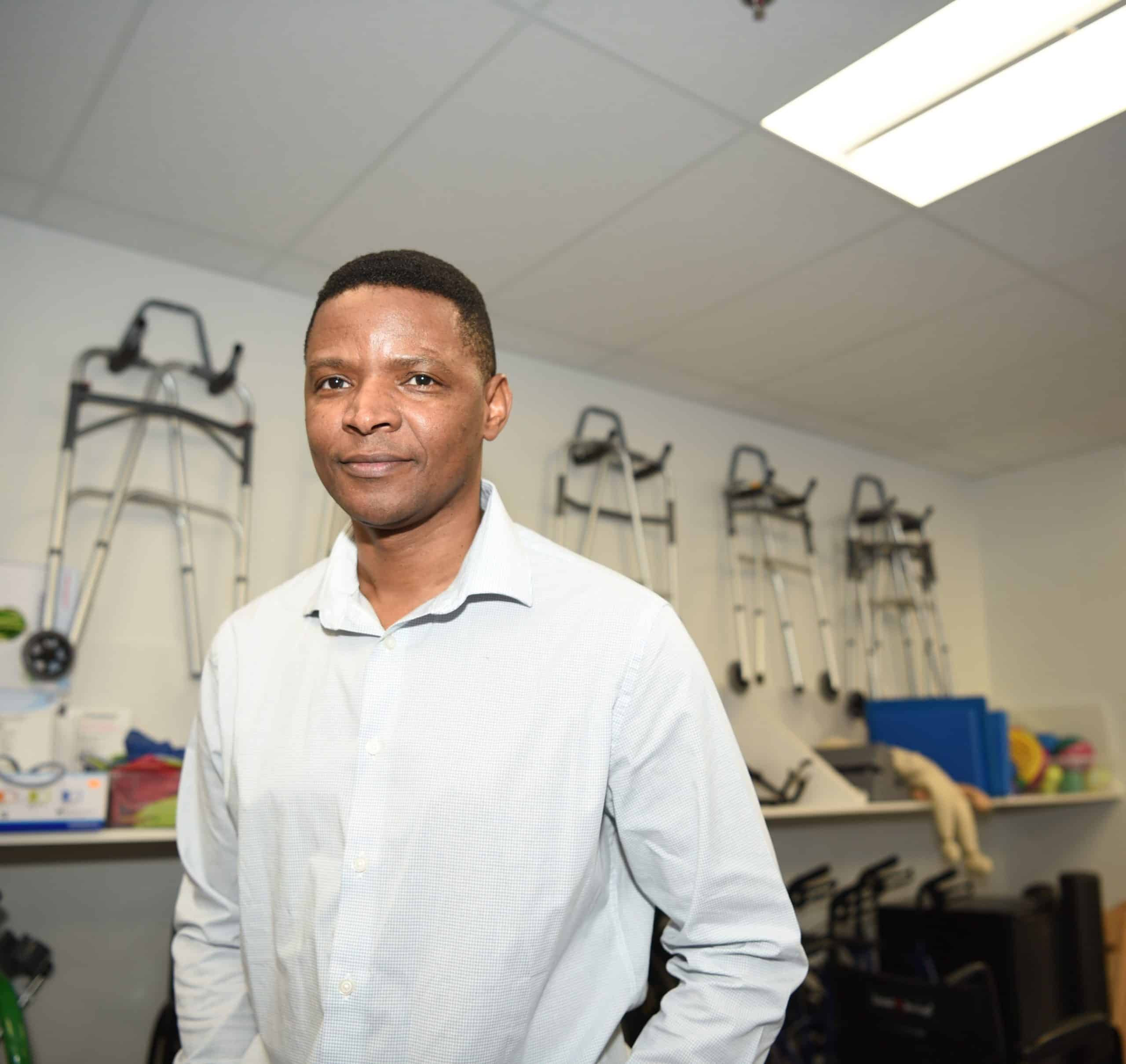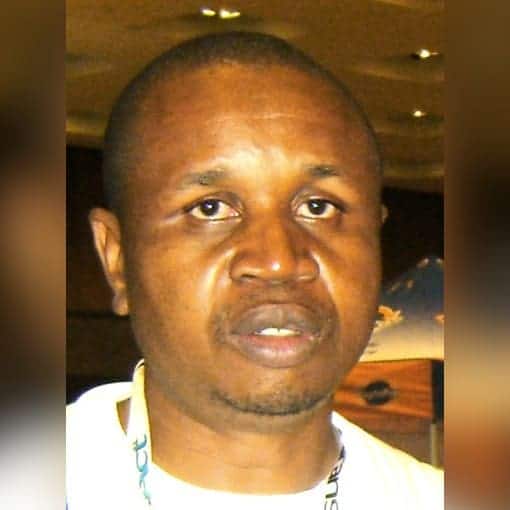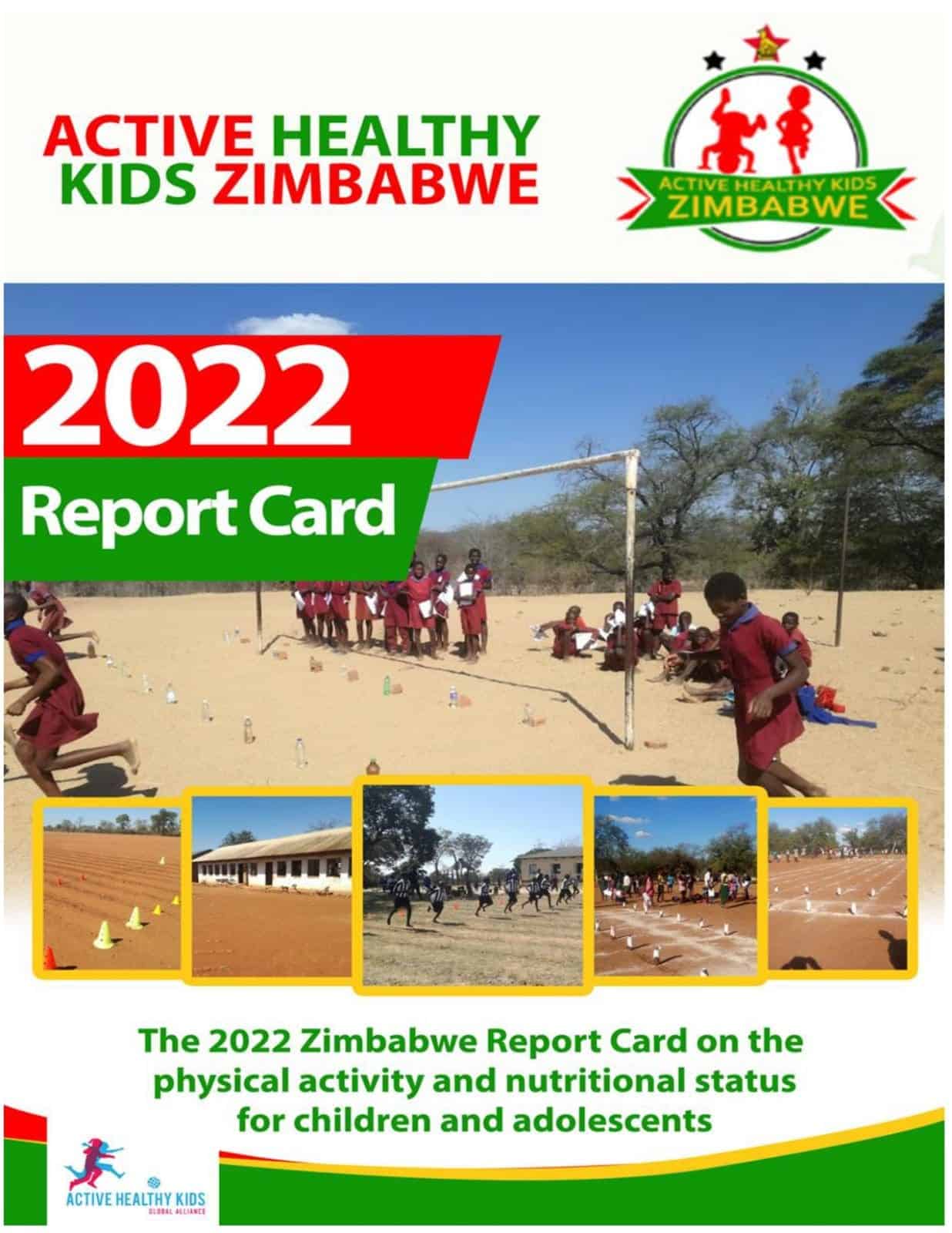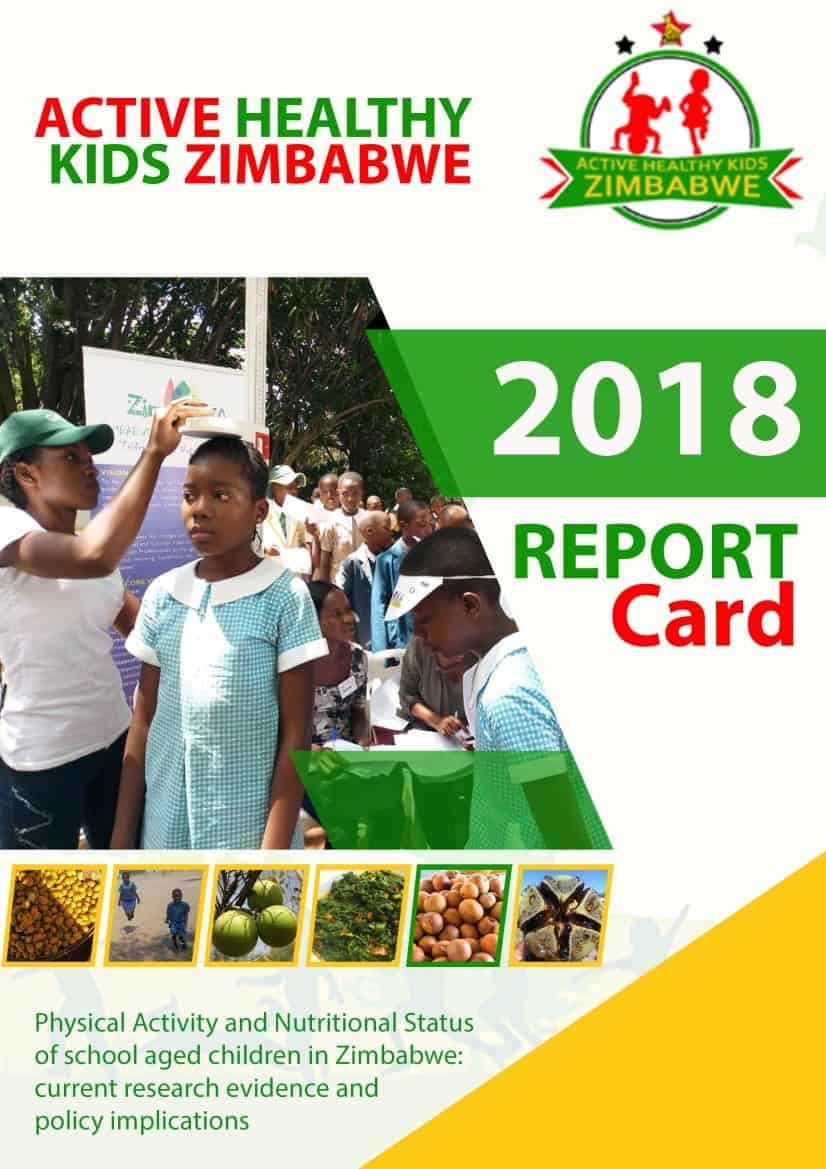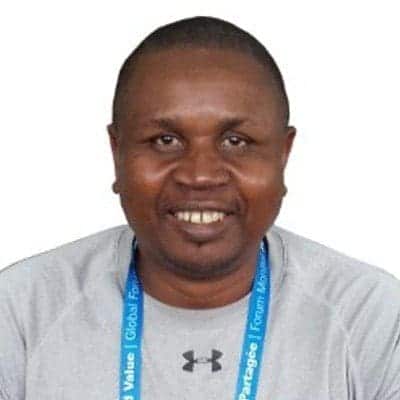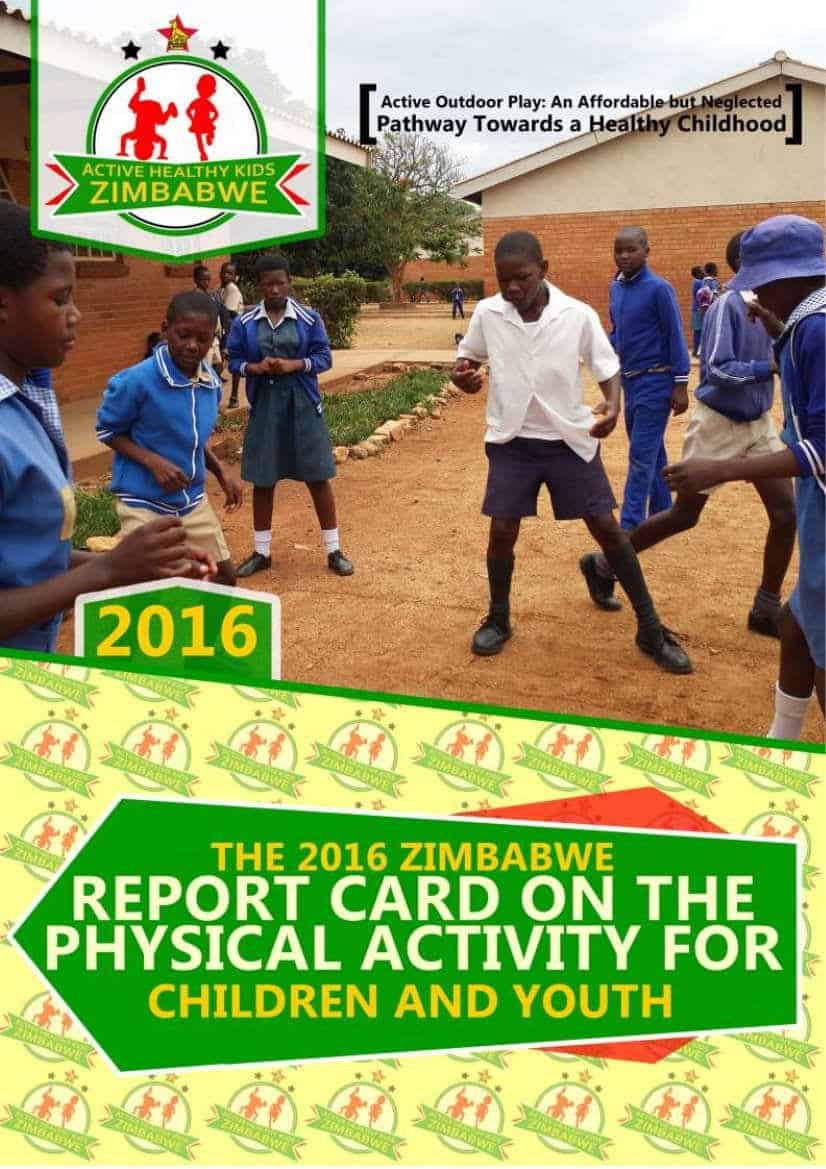

Report Card Leaders
Taru Manyanga, PH.D.
Dr. Taru Manyanga is an Assistant Professor in the Division of Medical Sciences at the University of Northern British Columbia. Taru is also affiliated with the Department of Physical Therapy at the University of British Columbia. He completed the entry-to-practice Physical Therapy degree and an MSc in Community Health Sciences at the University of Manitoba, before attending the University of Ottawa for a PhD in Epidemiology. Taru’s research applies an equity lens in examining and promoting fitness, active healthy lifestyle behaviors (i.e., physical activity, sleep, less screen time) across the life course with a particular interest in rural and underserved populations. Taru is a member of several clinical and academic organizations.
Daga Makaza, PH.D.
Dr. Daga Makaza is lecturer in the Department of Sports Science and Coaching, Faculty of Applied Science at the National University of Science and Technology (NUST) in Zimbabwe. He is the coordinator of the Health and Wellness Research Group under the Research and Innovation Department at NUST. He has been the project leader for two major national surveys on youth and children (Knowledge, Attitudes and Practices Survey: Olympism in Zimbabwe, 2012 and the Zimbabwe Nestle Healthy Kids Survey, 2015). Daga is also an external examiner of physical education at teachers’ colleges in Zimbabwe focusing on curriculum review, question paper moderation, academic and practical examinations. He has contributed on the Physical Education syllabus development national panel for the Ministry of Primary and Secondary Education from 2017 to date. Dr. Makaza is an active member of the Global forum for Physical education Pedagogy (GoFPEP). He has reviewed physical education modules for the Department of Teacher Education (DTE), University of Zimbabwe. He is currently co-leading Active Healthy Kids Zimbabwe (AHKZ). His research interests include Nutrition and Physical Activity, Kinanthropometry and ICT Pedagogy. Dr. Makaza has published in peer reviewed journals and has presented at several local and international conferences.
Report Card Grades
- Overall Physical Activity: C+*
- Organized Sport and Physical Activity: B-
- Active Play: C+
- Active Transportation: B
- Sedentary Behavior: C
- Physical Fitness: INC
- Family and Peers: INC
- School: C
- Community and Environment: C-
- Government: D
Related Links
Report Card Leaders
Taru Manyanga, Ph.D.
Taru Manyanga (co-leader of Active Healthy Kids Zimbabwe), is an Assistant Professor of Physical Therapy at the University of Northern British Columbia and a registered physiotherapist with the College of Physical Therapists of British Columbia. Taru holds a Bachelor of Medical Rehabilitation-Physical Therapy, and an MSc in Community Health Sciences from the University of Manitoba as well as a PhD in Epidemiology from the University of Ottawa. Taru’s research interests include exploring geographical and cultural differences in relationships among physical behaviors (sleep, sedentary time, physical activity) and health outcomes. Taru is also interested in expanding his research from only apparently healthy children and adolescents to include clinical populations, especially those with musculoskeletal and cardiorespiratory disorders. Taru is a member of many organizations including but not limited to: College of Physical Therapist of British Columbia, the Canadian Physiotherapists Association, Active Healthy Kids Global Alliance, Active Healthy Kids Zimbabwe, the African Physical Activity Network, Sedentary Behavior Research Network, Canadian Coalition for Global Health Research, Outdoor Play Canada, and the Canadian Child Health Clinician Scientist Program.
Daga Makaza, Ph.D.
Dr. Daga Makaza is lecturer in the Department of Sports Science and Coaching, Faculty of Applied Science at the National University of Science and Technology (NUST) in Zimbabwe. He is the coordinator of the Health and Wellness Research Group under the Research and Innovation Department at NUST. He has been the project leader for two major national surveys on youth and children (Knowledge, Attitudes and Practices Survey: Olympism in Zimbabwe, 2012 and the Zimbabwe Nestle Healthy Kids Survey, 2015). Daga is also an external examiner of physical education at teachers’ colleges in Zimbabwe focusing on curriculum review, question paper moderation, academic and practical examinations. He has contributed on the Physical Education syllabus development national panel for the Ministry of Primary and Secondary Education from 2017 to date. Dr. Makaza is an active member of the Global forum for Physical education Pedagogy (GoFPEP). He has reviewed physical education modules for the Department of Teacher Education (DTE), University of Zimbabwe. He is currently co-leading Active Healthy Kids Zimbabwe (AHKZ). His research interests include Nutrition and Physical Activity, Kinanthropometry and ICT Pedagogy. Dr. Makaza has published in peer reviewed journals and has presented at several local and international conferences.
Report Card Grades
- Overall Physical Activity: C+
- Organized Sport and Physical Activity: B
- Active Play: D+
- Active Transportation: A-
- Sedentary Behavior: B
- Physical Fitness: INC
- Family and Peers: INC
- School: C
- Community and Environment: D
- Government: C-
Related Links
Report Card Leaders
Taru Manyanga, Ph.D. candidate
Taru Manyanga is currently a PhD Student in the School of Epidemiology, Public Health and Preventive Medicine at the University of Ottawa. He is based at the Healthy Active Living and Obesity (HALO) Research Group, Children’s Hospital of Eastern Ontario Research Institute. Taru holds a Bachelor of Medical Rehabilitation-Physical Therapy degree and a MSc. in Community Health Sciences from the University of Manitoba. His research interests include the measurement of, and cultural and geographical differences in fundamental movement skills, lifestyle behaviors and obesity among children and youth. He is a member of the following organizations: college of physiotherapists of Ontario; African Physical Activity Network, Sedentary Behavior Research Network, Canadian Coalition for Global Health Research, Canadian Child Health Clinician Scientists Program, Canadian Obesity Network-Student and New Professionals (CON-SNP); and is co-chair of the Ottawa chapter of CON-SNP.
Daga Makaza, Ph.D. candidate
Mr. Daga Makaza is lecturer in the Department of Sports Science and Coaching, Faculty of Applied Science at the National University of Science and Technology (NUST) in Zimbabwe. He is currently a PhD candidate studying Nutrition Education and Physical Activity in primary school children. He is the coordinator of the Health and Wellness Research Group within the Research and Innovation Department at NUST. He has been a project leader for two major national surveys on youth and children (Knowledge, Attitudes and Practices Survey: Olympism in Zimbabwe, 2012 and the Zimbabwe Nestle Healthy Kids Survey, 2015). Mr. Makaza is an external examiner of physical education at teachers’ colleges in Zimbabwe, focusing on curriculum review, question paper moderation, academic and practical examinations. He has also contributed on the Physical Education syllabus development national panel for the Ministry of Primary and Secondary Education. He is an active member of the Global forum for Physical education Pedagogy (GoFPEP). He has reviewed physical education modules for the Department of Teacher Education (DTE) at the University of Zimbabwe. He is currently co-leading the effort to establish Active Healthy Kids Zimbabwe (AHKZ). His research interests include Nutrition and Physical Activity, Kinanthropometry and ICT Pedagogy. Mr. Makaza has published 17 articles in peer reviewed journals and has presented at several local and international conferences.
Testimonial
"For me, participating in the Global Matrix 3.0 has been an amazing and enriching experience. As this is the second time, that we have participated, the collaborations and networking opportunities have been remarkable. I am very grateful to be part of this global effort to get kids moving." - Taru Manyanga, Ph.D. candidate and Daga Makaza, Ph.D. candidate
Conference Abstract: Movement to Move
Results from Zimbabwe’s 2018 Report Card on Physical Activity for Children and Youth
Manyanga T, Makaza D, Mahachi C, Munambah NE, Mlalazi TF, Masocha V, Sithole F, Khumalo B, Rutsate SH, Makoni P, Matsungo T
Introduction: The present report card builds on the first one developed in 2016. It summarizes the best available evidence on the physical activity of children and youth in Zimbabwe.
Methods: Published, unpublished studies and policy documents reporting on physical activity and related behaviors for 5-17-year-old children were gathered and summarized into a bibliography and excel spreadsheet. Guided by Active Healthy Kids Global Alliance’s benchmarks, members of the Report Card Working Group individually assigned grades for each indicator. Individual members’ grades were collated, and discrepancies were noted. Grades for each indicator were converted to a numerical value using a common score. Discrepancies among members’ grades were reconciled (median score selected) at a grade assignment meeting.
Results: Overall, grades for behaviours (physical activity, sports, active play, transport and sedentary time) did not change from the 2016 Report Card owing to non-availability of new literature. There were improvements in grades for supports (school, community/built environment, government strategies) largely due to policy implementations and commitments made to promoting physical activity among children. Community infrastructure resuscitation, allocation of financial resources and the new curriculum allotting time and examination of physical education in schools were noted as targeting physical activity among children. There was insufficient evidence to accurately assign grades for Physical Fitness and Family and Peers. Grades assigned for each indicator are presented in the table below.
| Indicator | Grade |
| Overall Physical Activity | C+ |
| Organized Sport Participation | B |
| Active Play | D+ |
| Active Transportation | A- |
| Sedentary Behaviours | B |
| Physical Fitness | Incomplete |
| Family and Peers | Incomplete |
| School | C |
| Community and Environment | D |
| Government Strategies and investments | C- |
Conclusions/Recommendations: There is limited, and mostly unpublished research evidence on the physical activity among children in Zimbabwe. Overall physical activity levels for Zimbabwean children are lower than desired. Robust research using nationally representative samples, persistent advocacy and stakeholder engagement is needed.
Report Card Grades
- Overall Physical Activity: C+
- Organized Sport Participation: B
- Active Play: D+
- Active Transportation: A-
- Sedentary Behaviors: B
- Family and Peers: INC
- School: D
- Community and Built Environment: F
- Government Strategies and Investments: D
Related Links
Recommendations
- To urgently conduct robust research using representative samples, which will provide accurate estimates on levels of key indicators of Physical Activity among Zimbabwean children and youth?
- Creating and disseminating simple and accessible public health messages reinforcing and encouraging active transportation and active outdoor play as important contributors to overall physical activity among children and youth.
- Establishing an independent advocacy organization to develop strong, long lasting and mutually beneficial relationships/partnerships with key stakeholders (i.e. relevant government ministries; not-for-profit organizations; funders etc.).
- Partnering the relevant ministries of: Health and Child Welfare; Sports and Recreation; Primary and Secondary Education to develop and implement an evidence-informed national physical activity promotion strategy.
- Partnerships with like-minded corporations (e.g. Nestle Zimbabwe) to evaluate or enhance programs already implemented to encourage mass participation in physical activity among children and youth.
Report Card Leaders
Taru Manyanga, Ph.D. candidate
Taru Manyanga is currently a PhD Student in the School of Epidemiology, Public Health and Preventive Medicine at the University of Ottawa. He is based at the Healthy Active Living and Obesity (HALO) Research Group, Children’s Hospital of Eastern Ontario Research Institute. Taru holds a Bachelor of Medical Rehabilitation-Physical Therapy degree and a MSc. in Community Health Sciences from the University of Manitoba. His research interests include the measurement of, and cultural and geographical differences in fundamental movement skills, lifestyle behaviors and obesity among children and youth. He is a member of the following organizations: college of physiotherapists of Ontario; African Physical Activity Network, Sedentary Behavior Research Network, Canadian Coalition for Global Health Research, Canadian Child Health Clinician Scientists Program, Canadian Obesity Network-Student and New Professionals (CON-SNP); and is co-chair of the Ottawa chapter of CON-SNP.
Daga Makaza, Ph.D. candidate
Mr. Daga Makaza is lecturer in the Department of Sports Science and Coaching, Faculty of Applied Science at the National University of Science and Technology (NUST) in Zimbabwe. He is currently a PhD candidate studying Nutrition Education and Physical Activity in primary school children. He is the coordinator of the Health and Wellness Research Group within the Research and Innovation Department at NUST. He has been a project leader for two major national surveys on youth and children (Knowledge, Attitudes and Practices Survey: Olympism in Zimbabwe, 2012 and the Zimbabwe Nestle Healthy Kids Survey, 2015). Mr. Makaza is an external examiner of physical education at teachers’ colleges in Zimbabwe, focusing on curriculum review, question paper moderation, academic and practical examinations. He has also contributed on the Physical Education syllabus development national panel for the Ministry of Primary and Secondary Education. He is an active member of the Global forum for Physical education Pedagogy (GoFPEP). He has reviewed physical education modules for the Department of Teacher Education (DTE) at the University of Zimbabwe. He is currently co-leading the effort to establish Active Healthy Kids Zimbabwe (AHKZ). His research interests include Nutrition and Physical Activity, Kinanthropometry and ICT Pedagogy. Mr. Makaza has published 17 articles in peer reviewed journals and has presented at several local and international conferences.
Testimonial
"Being part of the Global Matrix 2.0 has been a great privilege, honour and an enriching experience at both personal and academic levels for me. Co-leading the development of Zimbabwe’s first ever Report Card introduced me to this incredible global network of dedicated scientists, policy makers and researchers. The process exposed me to a great network of local researchers and other influential stakeholders. Only through such genuine global efforts can we learn from, and with each other as peers. There is no doubt in my mind about the importance and positive impact of the report card to our efforts in promoting active and healthy lifestyles among Zimbabwean children and youth. This has been an incredible experience for me." - Taru Manyanga, Ph.D. candidate and Daga Makaza, Ph.D. candidate
Conference Abstract: 6th International Congress on Physical Activity and Public Health
Results from the 2016 Zimbabwe Report Card on the Physical Activity of Children and Youth
Manyanga T, Makaza D, Mahachi C, Mlalazi TF, Masocha V, Makoni P, Tapera E, Khumalo B, Rutsate SH, Tremblay MS
Background: The report card is a synthesis of the best available evidence on the performance of Zimbabwean children and youth on key physical activity (PA) indicators. The aim of this paper was to summarize the results from the 2016 Zimbabwe Report Card. Methods: The Report Card Working Group gathered and synthesized the best available evidence, met, discussed and assigned grades to 10 indicators based on the Active Healthy Kids Global Alliance global matrix grading system. Results: A little over half of Zimbabwean children and youth met the recommended amount of daily PA thus a grade of C+ for overall PA was assigned. Grades for 7 other indicators ranged from A- to F and 2 indicators were awarded incomplete grades due to insufficient or no data. Conclusions: Although the majority of children used active transport, played organized sports and engaged in acceptable levels of PA, most of them did not meet the recommended hours of unstructured/unorganized play per day. Studies with robust research designs and representative samples are needed to better inform future Report Cards. Zimbabwe also needs to prioritize policies and investments that promote greater and safe participation in PA among children and youth.
